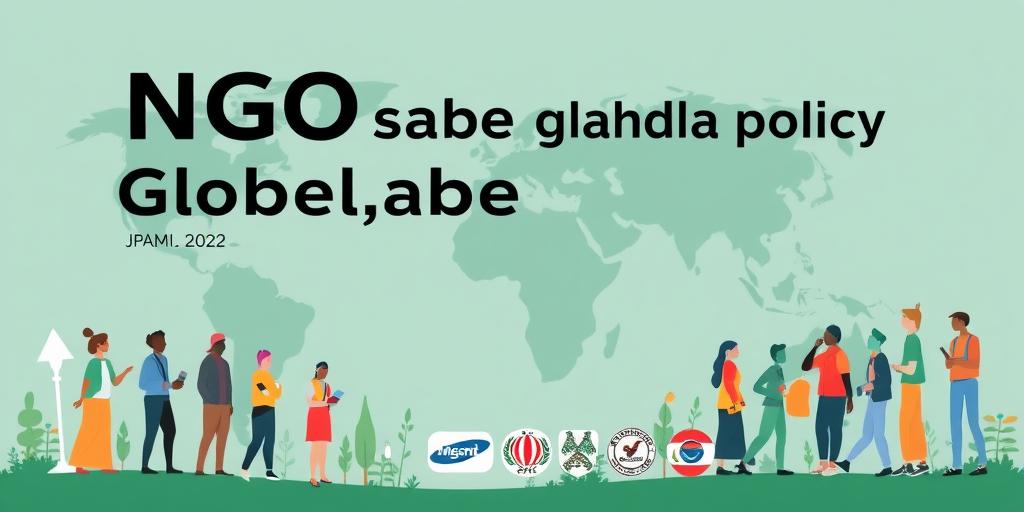Non-Governmental Organizations (NGOs) Shaping Global Policy
Non-Governmental Organizations (NGOs) play an increasingly vital role in shaping global policy. These organizations, independent of government control, operate across a wide range of sectors, from humanitarian aid and environmental conservation to human rights advocacy and international development. Through their diverse activities, NGOs contribute significantly to policy formulation, implementation, and monitoring at local, national, and international levels.
Defining NGOs and Their Role
NGOs are typically defined as non-profit, voluntary groups organized on a local, national, or international level to address issues in support of the public good. They operate independently of governments, although they may receive funding from governmental sources, private donors, or a combination of both. The core functions of NGOs include:
- Advocacy: Promoting policy changes through lobbying, public campaigns, and raising awareness.
- Service Delivery: Implementing projects that provide direct assistance, such as healthcare, education, and disaster relief.
- Monitoring: Observing and reporting on government actions and policy implementation to ensure accountability.
- Research: Conducting studies and gathering data to inform policy debates and decision-making processes.
How NGOs Influence Global Policy
NGOs employ several strategies to influence global policy. These include:
- Lobbying and Advocacy: NGOs engage with policymakers directly, providing research-based evidence, proposing policy alternatives, and advocating for specific changes. They often participate in international conferences and forums, such as those organized by the United Nations, to voice their concerns and recommendations.
- Public Awareness Campaigns: NGOs launch public awareness campaigns to educate and mobilize the public on critical issues. By shaping public opinion, they can indirectly influence policymakers to address these issues. These campaigns often involve media outreach, social media engagement, and grassroots mobilization.
- Monitoring and Reporting: NGOs monitor government actions and policy implementation, holding them accountable for their commitments. They publish reports, conduct investigations, and disseminate information to the public and policymakers, highlighting successes and failures in policy implementation.
- Collaboration and Partnerships: NGOs collaborate with governments, international organizations, and other NGOs to achieve common goals. By forming strategic partnerships, they can leverage their collective resources and expertise to influence policy more effectively.
Examples of NGOs Shaping Global Policy
Several NGOs have played pivotal roles in shaping global policy across various sectors:
- Amnesty International: Advocates for human rights globally, influencing policies related to freedom of expression, fair trials, and the abolition of the death penalty.
- Greenpeace: Focuses on environmental conservation, campaigning against deforestation, pollution, and climate change, leading to the adoption of stricter environmental regulations.
- Doctors Without Borders (Médecins Sans Frontières): Provides medical assistance in conflict zones and countries affected by endemic diseases, influencing policies related to humanitarian aid and healthcare access.
- Oxfam: Works to alleviate global poverty, advocating for fair trade policies, debt relief, and increased development assistance.
Challenges and Criticisms
Despite their significant contributions, NGOs face several challenges and criticisms:
- Funding Constraints: Many NGOs rely on donor funding, which can be unpredictable and may influence their priorities.
- Accountability Issues: Ensuring transparency and accountability in their operations can be challenging, particularly for larger NGOs.
- Lack of Representation: Some critics argue that NGOs do not always represent the interests of the communities they serve, leading to concerns about legitimacy and effectiveness.
- Political Bias: Accusations of political bias can undermine the credibility and influence of NGOs, particularly when they engage in advocacy and lobbying activities.
The Future of NGOs in Global Policy
As global challenges become more complex and interconnected, the role of NGOs in shaping policy is likely to grow. To enhance their effectiveness, NGOs need to:
- Strengthen their accountability mechanisms to ensure transparency and legitimacy.
- Diversify their funding sources to reduce reliance on donor funding and maintain their independence.
- Enhance their collaboration and partnerships with governments, international organizations, and other NGOs to leverage their collective resources and expertise.
- Embrace innovative approaches to advocacy, service delivery, and monitoring, leveraging technology and data to enhance their impact.
In conclusion, NGOs play a critical role in shaping global policy by advocating for change, delivering services, monitoring government actions, and conducting research. While they face challenges and criticisms, their contributions are essential for addressing pressing global issues and promoting a more just and sustainable world.









